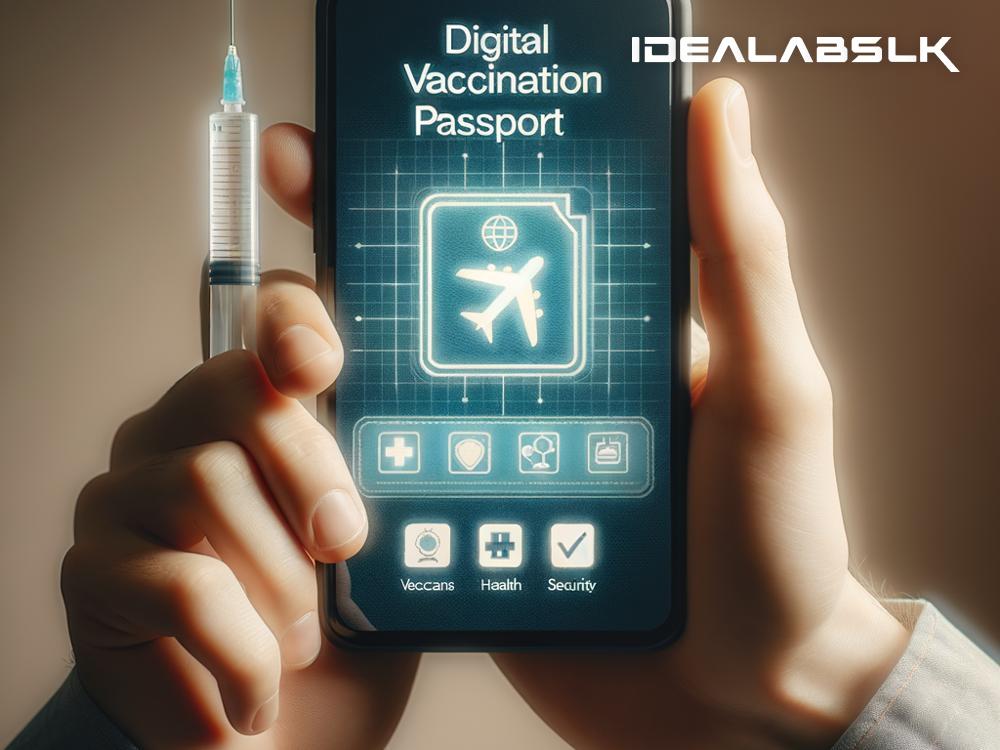How Technology is Simplifying Vaccine Record Keeping: Unpacking Digital Health Passports
In today’s world, technology touches almost every aspect of our lives, and healthcare is no exception. One of the most significant advances in recent years is how we manage and track vaccination records. Gone are the days of rummaging through drawers for that yellow immunization card before a doctor's appointment or travel. The rise of digital health passports is making this process simpler, more reliable, and incredibly convenient. So, let's dive into how technology is revolutionizing the way we track vaccination records.
What Are Digital Health Passports?
Imagine having all your vaccination records in one place, accessible with just a few clicks on your smartphone or computer. That's essentially what digital health passports offer. They are digital platforms – think of them as secure apps on your phone or specialized websites – where your vaccination history is stored. You can access your records at any time and easily share them with healthcare providers, schools, or even when traveling.
Ease of Access and Organization
One of the most immediate benefits of digital health passports is how they simplify accessing and organizing vaccination records. Instead of paper records that can be lost or damaged, digital versions are safely stored online. This means you can quickly retrieve your vaccination history whenever you need it, without the panic of lost paperwork.
For families, this is particularly beneficial. Parents can track their children's vaccination schedules and histories with ease, ensuring no missed vaccines or unnecessary duplicate shots. It’s a game-changer for maintaining public health and personal record-keeping.
Travel and Public Spaces
In the age of COVID-19, proof of vaccination has become a requirement to enter certain countries, attend events, or even dine in some restaurants. Digital health passports can streamline this process. They provide a quick and verifiable way to show that you've received necessary vaccines, reducing wait times and the hassle of carrying physical documents.
Moreover, these digital platforms often come with privacy features that allow you to show your vaccination status without revealing any other personal health information. This balance between public safety and personal privacy is a significant advantage over traditional paper records.
Boosting Vaccination Rates
Another potential benefit of digital health passports is their role in encouraging vaccinations. By making records easily accessible and simplifying the tracking process, these digital tools could remind individuals when it's time for a booster or when they’re due for a new vaccine. This ease of use could help improve overall vaccination rates, which is crucial for combatting diseases and protecting public health.
Challenges and Considerations
Despite their benefits, digital health passports are not without challenges. There are legitimate concerns about data privacy and security. Trusting our sensitive health information to digital platforms requires robust security measures and regulations to prevent unauthorized access.
Accessibility is another issue. Not everyone has access to the necessary technology or the know-how to use these digital platforms. It's crucial that as digital health passports become more prevalent, efforts are made to ensure everyone can benefit from this technological advance, not just those with easy access to digital devices.
Looking to the Future
As we continue to navigate a world where staying healthy and proving our health status is more critical than ever, digital health passports could play a vital part. By offering a convenient, secure, and efficient way to manage vaccination records, these tools represent a significant leap forward in public health technology.
Innovation in healthcare, driven by technology, has the potential to transform how we keep ourselves and our communities safe. Digital health passports are just the beginning. As technology continues to evolve, we can expect even more significant advances that will simplify healthcare management, making it more accessible and effective for everyone.
In conclusion, while there are challenges to address, the benefits of digital health passports—accessibility, convenience, and the potential to boost vaccination rates—are clear. As we embrace these technological solutions, we're moving towards a future where managing health information is easier, safer, and more efficient than ever before. It's an exciting time for technology in healthcare, and digital health passports are leading the way.

